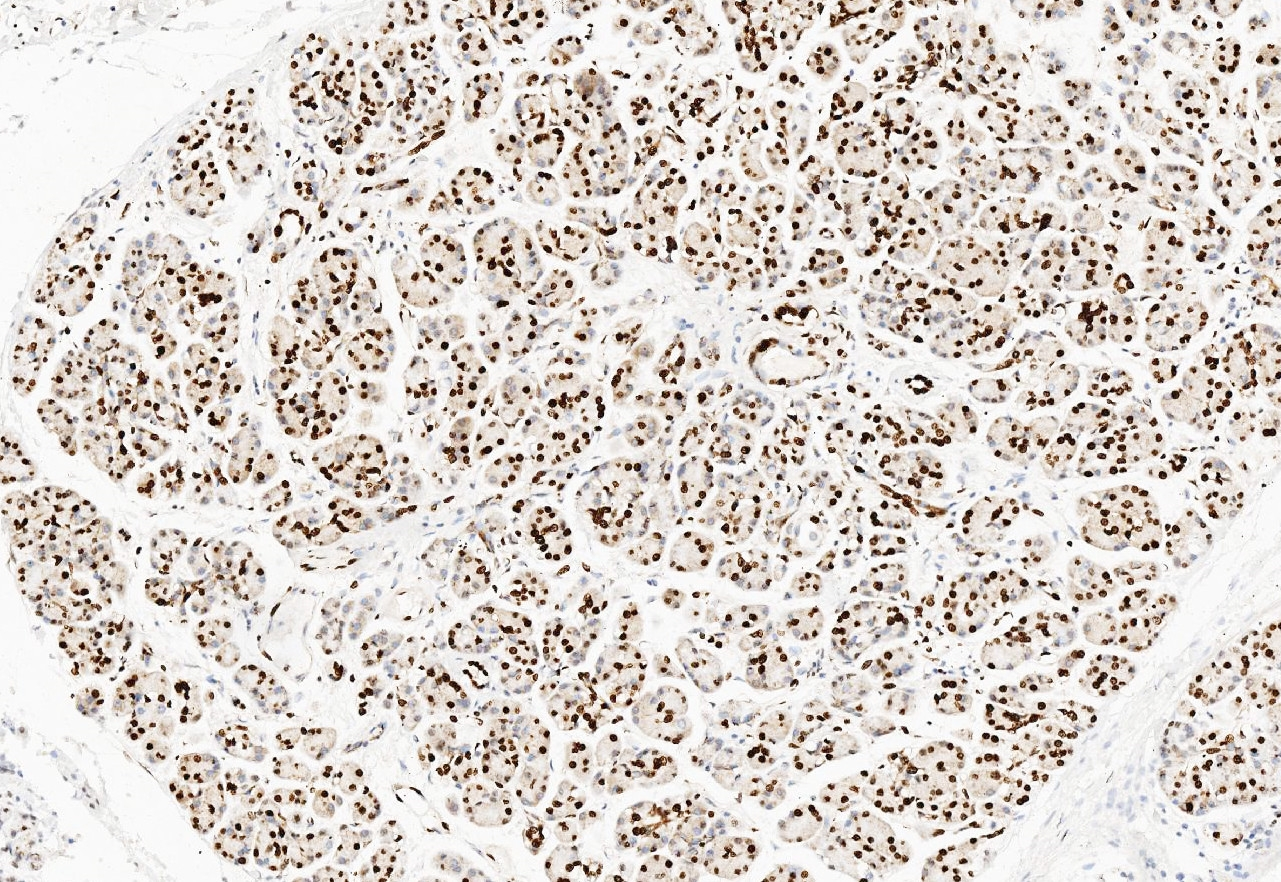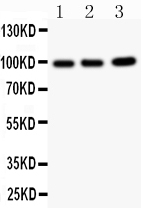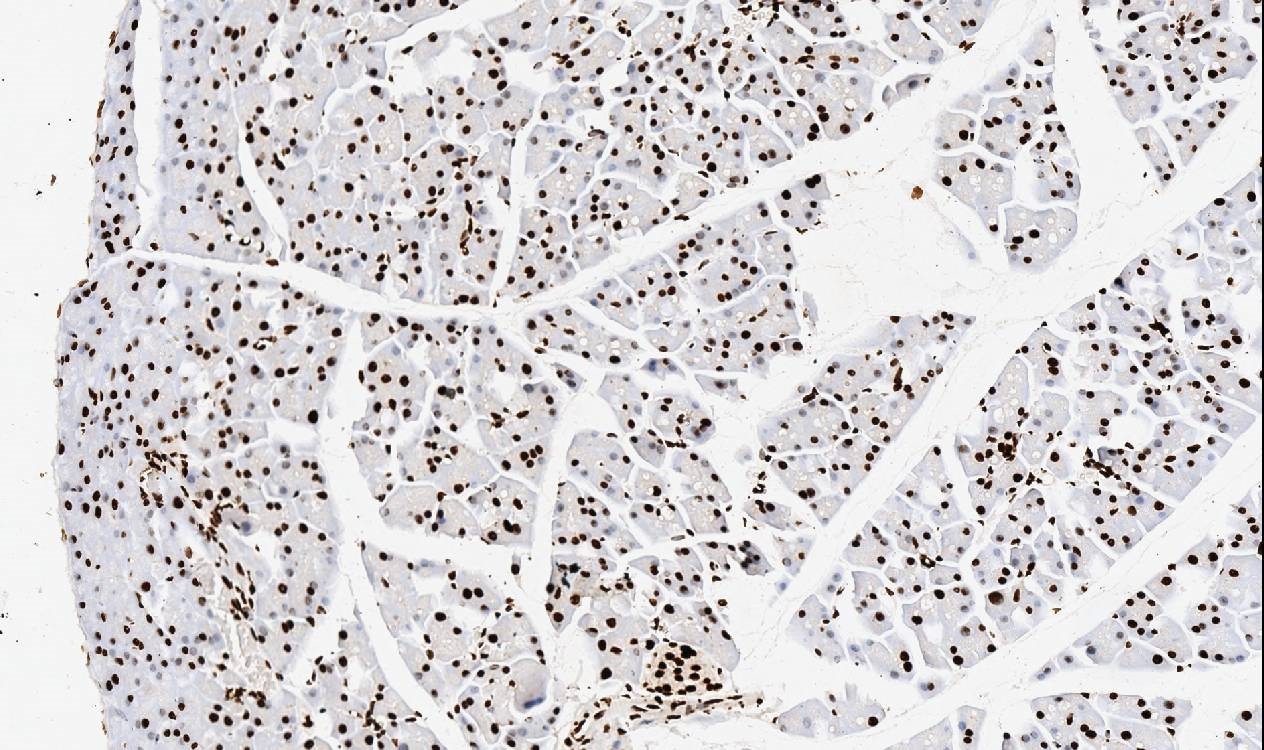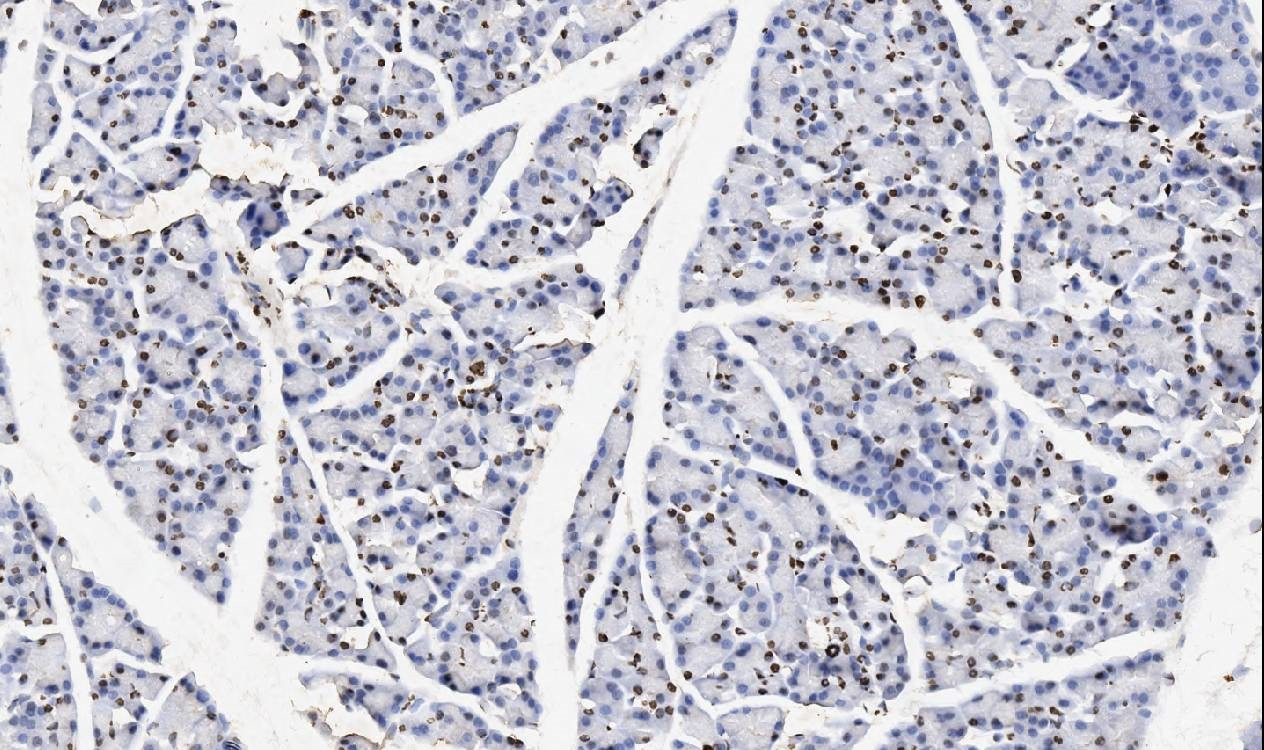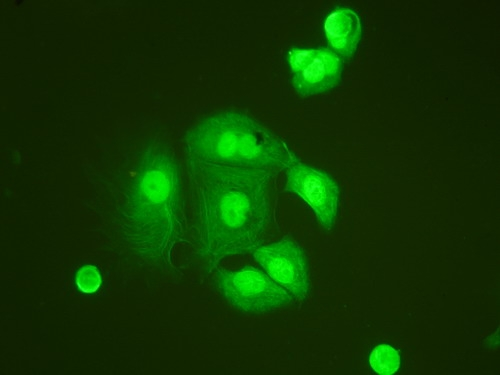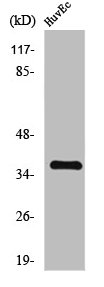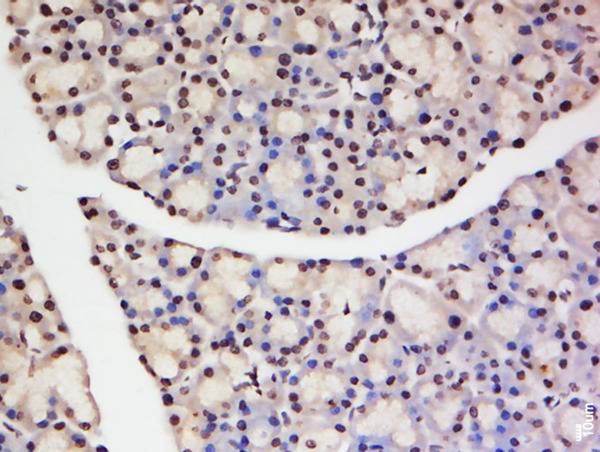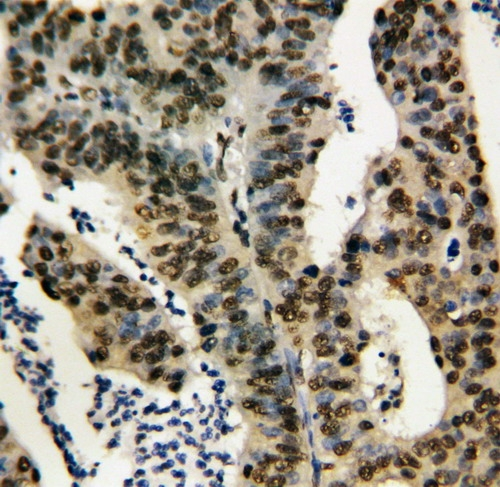
IHC-P analysis of human rectal cancer tissue using GTX11617 TNFAIP1 antibody.
TNFAIP1 antibody
GTX11617
ApplicationsImmunoFluorescence, Western Blot, ImmunoCytoChemistry, ImmunoHistoChemistry, ImmunoHistoChemistry Frozen, ImmunoHistoChemistry Paraffin
Product group Antibodies
ReactivityHuman, Mouse, Rat
TargetTNFAIP1
Overview
- SupplierGeneTex
- Product NameTNFAIP1 antibody
- Delivery Days Customer9
- Application Supplier NoteWB: 0.1-0.5microg/ml. ICC/IF: 0.5-1microg/ml. IHC-P: 0.5-1microg/ml. IHC-Fr: 0.5-1microg/ml. *Optimal dilutions/concentrations should be determined by the researcher.Not tested in other applications.
- ApplicationsImmunoFluorescence, Western Blot, ImmunoCytoChemistry, ImmunoHistoChemistry, ImmunoHistoChemistry Frozen, ImmunoHistoChemistry Paraffin
- CertificationResearch Use Only
- ClonalityPolyclonal
- Concentration500 ug/ml
- ConjugateUnconjugated
- Gene ID7126
- Target nameTNFAIP1
- Target descriptionTNF alpha induced protein 1
- Target synonymsB12, B61, BTBD34, EDP1, hBACURD2, BTB/POZ domain-containing adapter for CUL3-mediated RhoA degradation protein 2, BTB/POZ domain-containing protein TNFAIP1, tumor necrosis factor, alpha induced protein 1, tumor necrosis factor, alpha-induced protein 1 (endothelial)
- HostRabbit
- IsotypeIgG
- Protein IDQ13829
- Protein NameBTB/POZ domain-containing adapter for CUL3-mediated RhoA degradation protein 2
- Scientific DescriptionThis gene was identified as a gene whose expression can be induced by the tumor necrosis factor alpha (TNF) in umbilical vein endothelial cells. Studies of a similar gene in mouse suggest that the expression of this gene is developmentally regulated in a tissue-specific manner. [provided by RefSeq, Jul 2008]
- ReactivityHuman, Mouse, Rat
- Storage Instruction-20°C or -80°C,2°C to 8°C
- UNSPSC41116161

